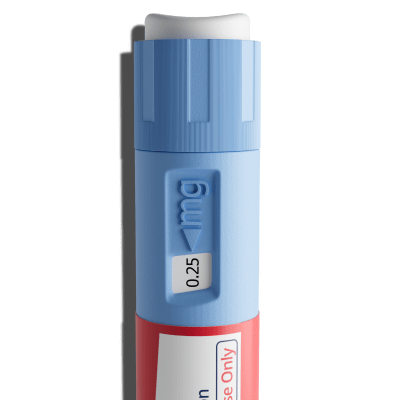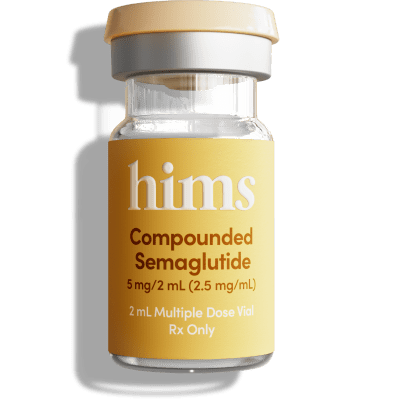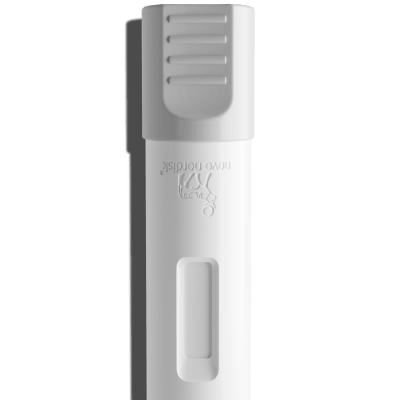Content
View weight loss medications
Best Supplements for Gut Health and Weight Loss

Right now inside your body is a vast network of organisms (over 100 trillion) called the microbiome working to keep your digestion moving and everything regular. Pretty amazing to think about, right?
The microbiome in your gut works to break down food so you can better absorb nutrients. The state of your gut health can impact your overall health, from digestion to weight loss and more.
What you eat and certain dietary supplements can influence your gut health. Below, we’ve discussed some of the best supplements for gut health and weight loss.
Content
Why Does Gut Health Matter?
You’ve probably heard the term “gut health” before and that it’s an important part of your overall health and well-being.
But what is gut health and why is it so important?
While there isn’t an exact definition, research suggests that gut health covers the health of your microbiome and your digestive and immune systems.
The health of your digestive tract has been linked to several health issues, including obesity, type 2 diabetes, inflammatory bowel diseases, and certain types of cancer.
Turns out listening to your gut doesn’t just mean your intuition — your gut health could be an indicator of your physical health, too.
Best Supplements For Gut Health
So how do you get your gut health on the right track? One way is to take supplements that may improve gut health by supporting the trillions of microorganisms (called microbes) living in your gut.
Here are six recommendations for a healthy gut.
1. Probiotics
A healthy gut has a balanced variety of probiotics, or live microorganisms that change the composition of the gut.
While found naturally in fermented foods like yogurt, sauerkraut, kefir, and kombucha, you can also take a probiotic supplement to boost gut health.
Studies suggest that those who regularly take a synbiotic (combination of probiotics and prebiotics) can significantly reduce body weight when combined with lifestyle changes like a balanced diet and regular exercise.
2. Prebiotics
Naturally found in carbohydrates, fruits, and vegetables, prebiotics fuel probiotic bacteria and support their growth in the gut.
To understand the difference between probiotics and prebiotics, think of probiotics as the supplement that adds beneficial bacteria to your gut, while prebiotics feed the bacteria.
3. Apple Cider Vinegar
Made from the fermented juice of apples, apple cider vinegar contains beneficial organisms like acetic acid bacteria, polyphenolic compounds, and lactic acid bacteria.
Petri dish studies suggest that apple cider vinegar kills certain microbes, potentially creating beneficial gut microbiome changes.
Apple cider vinegar — sometimes abbreviated to ACV — may also support weight loss: Several small, short-term studies in adults with excess weight or obesity found links between apple cider vinegar and weight loss.
While many people report digestive health improvements from apple cider vinegar, more research on the effects is needed to fully substantiate the potential health benefits.
4. Vitamin C
Known for its antioxidant properties, vitamin C may also increase the amount of good bacteria in your gut.
One small 2021 study showed that 1,000 milligrams of vitamin C daily resulted in beneficial shifts in bacterial strain diversity.
Another small study found that vitamin C supplementation increased one particular strain of bacteria, Bifidobacterium, which has positive health benefits.
Vitamin C is present in citrus fruits like oranges or cruciferous veggies like broccoli, or you can take a daily vitamin C supplement.
5. Vitamin D
Vitamin D is essential for strong immunity and maintaining healthy bones and teeth. Plus, it may even positively impact gut health.
A research review from 2020 indicates that vitamin D may have anti-inflammatory properties in the digestive tract and help regulate balance in the gastrointestinal wall. It’s worth noting, however, that this was a mix of human and animal studies.
An increase in vitamin D may also help with weight management, as this vitamin helps calcium absorption and may aid weight loss.
While more research is needed on whether vitamin D helps gut health, D deficiencies are fairly common. Besides supplements, good sources of vitamin D include fatty fish like salmon and tuna, egg yolks, mushrooms, and more.
6. Ginger
Although most known for its anti-inflammatory and antioxidant properties, ginger root may also help improve digestion and gut health.
Fresh ginger juice may have positively impacted gut microbiota in 123 healthy men and women over two weeks. At the end of the study, those who had ginger juice had greater bacterial diversity in their gut microbiomes compared to those who took a sodium chloride placebo.
Signs of an Unhealthy Gut
How do you know if you have an unhealthy gut?
While symptoms can vary between people, signs of an unhealthy gut may include:
Abdominal pain
Bloating
Irregular bowel movements
Constipation or gas
Diarrhea
Disrupted sleep
Weight gain or weight loss
Skin irritation
Increased stress
How to Help Gut Health
Not only can improving your gut health help relieve any discomfort or irregularity you may be experiencing, but a healthy gut may also help support weight loss efforts and reduce the risk of chronic health conditions.
While supplements like probiotics and apple cider vinegar are one way, consuming a healthy diet will have a large impact on balancing your gut microbiome.
A diet rich in complex carbohydrates like whole grains, more plant proteins, fruits and vegetables, and nutrients like omega-3 fatty acids (found in fatty fish) appear to support gut health.
On the flip side, eating large amounts of saturated fat, sugar, salt, and meat seems to benefit harmful bacteria, potentially harming your intestinal barrier.
The Mediterranean diet — an eating plan that focuses on fruits, vegetables, seafood, whole grains, extra virgin olive oil, nuts, and seeds — has been found to be particularly effective at improving gut health.
Regular movement helps with weight loss, and it may also lead to better gut health.
Regular cardiovascular exercise improved the gut bacteria of 24 non-obese men as well as showing a connection between body mass index (BMI) and gut microbiome diversity.
Better Understanding Gut Health
The term gut health is all over the place. But what does having a healthy gut mean and how can you get one? And what does gut health have to do with weight?
The health of your gut is connected to overall health and wellness, impacting your immune and digestive systems to mood and even weight management.
Certain supplements like probiotics, prebiotics, apple cider vinegar, ginger, and vitamins C and D may benefit the healthy bacteria in your gut and improve gut health.
While more research is needed on the effects of supplements on gut health, eating a balanced diet of fruits, vegetables, lean protein, and whole grains — and getting regular movement — will not only support beneficial gut bacteria but also lead to a healthy weight.
Improving the health of your gut is just one part of weight management. Depending on your health, goals, and more, weight loss medications like Ozempic® and metformin may be part of your journey.
If you have more questions about weight loss, you can talk to a healthcare professional about a weight management plan today.
19 Sources
- Williams, G. M., Tapsell, L. C., & Beck, E. J. (2023). Gut health, the microbiome and dietary choices: An exploration of consumer perspectives. Nutrition & dietetics: the journal of the Dietitians Association of Australia, 80(1), 85–94. Retrieved from https://www.ncbi.nlm.nih.gov/pmc/articles/PMC10092166/
- de Vos, W. M., Tilg, H., Van Hul, M., & Cani, P. D. (2022). Gut microbiome and health: mechanistic insights. Gut, 71(5), 1020–1032. Retrieved from https://www.ncbi.nlm.nih.gov/pmc/articles/PMC8995832/
- Ferraris, C., Elli, M., & Tagliabue, A. (2020). Gut Microbiota for Health: How Can Diet Maintain A Healthy Gut Microbiota?. Nutrients, 12(11), 3596. Retrieved from https://www.ncbi.nlm.nih.gov/pmc/articles/PMC7700621/
- Dahiya, D., & Nigam, P. S. (2022). The Gut Microbiota Influenced by the Intake of Probiotics and Functional Foods with Prebiotics Can Sustain Wellness and Alleviate Certain Ailments like Gut-Inflammation and Colon-Cancer. Microorganisms, 10(3), 665. Retrieved from https://www.ncbi.nlm.nih.gov/pmc/articles/PMC8954736/
- Álvarez-Arraño, V., & Martín-Peláez, S. (2021). Effects of Probiotics and Synbiotics on Weight Loss in Subjects with Overweight or Obesity: A Systematic Review. Nutrients, 13(10), 3627. Retrieved from https://www.ncbi.nlm.nih.gov/pmc/articles/PMC8540110/
- Dahiya, D., & Nigam, P. S. (2022). The Gut Microbiota Influenced by the Intake of Probiotics and Functional Foods with Prebiotics Can Sustain Wellness and Alleviate Certain Ailments like Gut-Inflammation and Colon-Cancer. Microorganisms, 10(3), 665. Retrieved from https://www.ncbi.nlm.nih.gov/pmc/articles/PMC8954736/
- Trček, J., Mahnič, A., & Rupnik, M. (2016). Diversity of the microbiota involved in wine and organic apple cider submerged vinegar production as revealed by DHPLC analysis and next-generation sequencing. International Journal of Food Microbiology, 223, 57-62. Retrieved from https://www.sciencedirect.com/science/article/abs/pii/S0168160516300538?via%3Dihub
- Yagnik, D., & Serafin, V. (2018). Antimicrobial activity of apple cider vinegar against Escherichia coli, Staphylococcus aureus and Candida albicans; downregulating cytokine and microbial protein expression. Scientific Reports, 8(1), 1-12. Retrieved from https://www.nature.com/articles/s41598-017-18618-x
- Khezri, S. S., Saidpour, A., Hosseinzadeh, N., & Amiri, Z. (2018). Beneficial effects of Apple Cider Vinegar on weight management, Visceral Adiposity Index and lipid profile in overweight or obese subjects receiving restricted calorie diet: A randomized clinical trial. Journal of Functional Foods, 43, 95-102. Retrieved from https://www.sciencedirect.com/science/article/abs/pii/S1756464618300483
- Otten, A. T., Bourgonje, A. R., Peters, V., Alizadeh, B. Z., Dijkstra, G., & Harmsen, H. J. M. (2021). Vitamin C Supplementation in Healthy Individuals Leads to Shifts of Bacterial Populations in the Gut-A Pilot Study. Antioxidants (Basel, Switzerland), 10(8), 1278. Retrieved from https://www.ncbi.nlm.nih.gov/pmc/articles/PMC8389205/
- Hazan, S., Dave, S., Papoutsis, A. J., Deshpande, N., Howell, M. C., Jr, & Martin, L. M. (2022). Vitamin C improves gut Bifidobacteria in humans. Future microbiology, 10.2217/fmb-2022-0209. Advance online publication. Retrieved from https://pubmed.ncbi.nlm.nih.gov/36475828/
- Akimbekov, N. S., Digel, I., Sherelkhan, D. K., Lutfor, A. B., & Razzaque, M. S. (2020). Vitamin D and the Host-Gut Microbiome: A Brief Overview. Acta histochemica et cytochemica, 53(3), 33–42. Retrieved from https://www.ncbi.nlm.nih.gov/pmc/articles/PMC7322162/
- Bonetti, G., Herbst, K. L., Donato, K., Dhuli, K., Kiani, A. K., Aquilanti, B., Velluti, V., Matera, G., Iaconelli, A., & Bertelli, M. (2022). Dietary supplements for obesity. Journal of preventive medicine and hygiene, 63(2 Suppl 3), E160–E168. Retrieved from https://www.ncbi.nlm.nih.gov/pmc/articles/PMC9710396/
- Forrest, K. Y., & Stuhldreher, W. L. (2011). Prevalence and correlates of vitamin D deficiency in US adults. Nutrition research (New York, N.Y.), 31(1), 48–54. Retrieved from https://pubmed.ncbi.nlm.nih.gov/21310306/
- Vitamin D - Health Professional Fact Sheet. (2023, September 18). NIH Office of Dietary Supplements. Retrieved from https://ods.od.nih.gov/factsheets/VitaminD-HealthProfessional/
- Wang, X., Zhang, D., Jiang, H., Zhang, S., Pang, X., Gao, S., Zhang, H., Zhang, S., Xiao, Q., Chen, L., Wang, S., Qi, D., & Li, Y. (2021). Gut Microbiota Variation With Short-Term Intake of Ginger Juice on Human Health. Frontiers in microbiology, 11, 576061. Retrieved from https://www.ncbi.nlm.nih.gov/pmc/articles/PMC7940200/
- Rinninella, E., Cintoni, M., Raoul, P., Lopetuso, L. R., Scaldaferri, F., Pulcini, G., Miggiano, G. A. D., Gasbarrini, A., & Mele, M. C. (2019). Food Components and Dietary Habits: Keys for a Healthy Gut Microbiota Composition. Nutrients, 11(10), 2393. Retrieved from https://www.ncbi.nlm.nih.gov/pmc/articles/PMC6835969/
- Ferraris, C., Elli, M., & Tagliabue, A. (2020). Gut Microbiota for Health: How Can Diet Maintain A Healthy Gut Microbiota?. Nutrients, 12(11), 3596. Retrieved from https://www.ncbi.nlm.nih.gov/pmc/articles/PMC7700621/
- Resende, A. S., Leite, G. S. F., & Lancha Junior, A. H. (2021). Changes in the Gut Bacteria Composition of Healthy Men with the Same Nutritional Profile Undergoing 10-Week Aerobic Exercise Training: A Randomized Controlled Trial. Nutrients, 13(8), 2839. Retrieved from https://www.ncbi.nlm.nih.gov/pmc/articles/PMC8398245/
Editorial Standards
Hims & Hers has strict sourcing guidelines to ensure our content is accurate and current. We rely on peer-reviewed studies, academic research institutions, and medical associations. We strive to use primary sources and refrain from using tertiary references. See a mistake? Let us know at blog@forhims.com!
This article is for informational purposes only and does not constitute medical advice. The information contained herein is not a substitute for and should never be relied upon for professional medical advice. Always talk to your doctor about the risks and benefits of any treatment. Learn more about our editorial standards here.
Craig Primack, MD, FACP, FAAP, FOMA
Dr. Craig Primack MD, FACP, FAAP, FOMA is a physician specializing in obesity medicine.
He completed his undergraduate studies at the University of Illinois and subsequently attended medical school at Loyola University — The Stritch School of Medicine.
He completed a combined residency in Internal Medicine and in Pediatrics at Banner University- Phoenix, and Phoenix Children's Hospital. He received post-residency training in Obesity Medicine and is one of about 7,000 physicians in the U.S. certified by the American Board of Obesity Medicine.
In 2006, Dr. Primack co-founded Scottdale Weight Loss Center in Scottsdale, Arizona, where he began practicing full-time obesity medicine. Scottsdale Weight Loss Center has grown since then to six obesity medicine clinicians in four locations around the greater Phoenix Metropolitan area.
From 2019–2021, he served as president of the Obesity Medicine Association (OMA), a society of over 5,000 clinicians dedicated to clinical obesity medicine. He has been on the OMA board since 2010, currently serving as ex-officio trustee.
Dr. Primack routinely does media interviews regarding weight loss and regularly speaks around the country educating medical professionals about weight loss and obesity care. He is co-author of the book, “Chasing Diets.”
Publications
Bays, H., Lazarus, E., Primack, C., & Fitch, A. (2022). Obesity pillars roundtable: Phentermine — Past, present, and future. Obesity Pillars, 3, 100024. https://www.sciencedirect.com/science/article/pii/S2667368122000158
Primack C. (2021). Obesity and Sleep. The Nursing clinics of North America, 56(4), 565–572. https://www.sciencedirect.com/science/article/abs/pii/S002964652100075X?via%3Dihub
Primack C. (2018). A review and critique of published real-world weight management program studies. Postgraduate medicine, 130(6), 548–560. https://www.tandfonline.com/doi/abs/10.1080/00325481.2018.1498280
Swanson, E., & Primack, C. (2017). Behavior Modification: A Patient and Physician's Perspective. Advances in therapy, 34(3), 765–769. https://www.ncbi.nlm.nih.gov/pmc/articles/PMC5350202/
Primack, C. (2012). Two New Drugs Approved for Weight Loss Treatment. Bariatric Times, 9(8), 11. https://bariatrictimes.com/two-new-drugs-approved-for-weight-loss-treatment/




